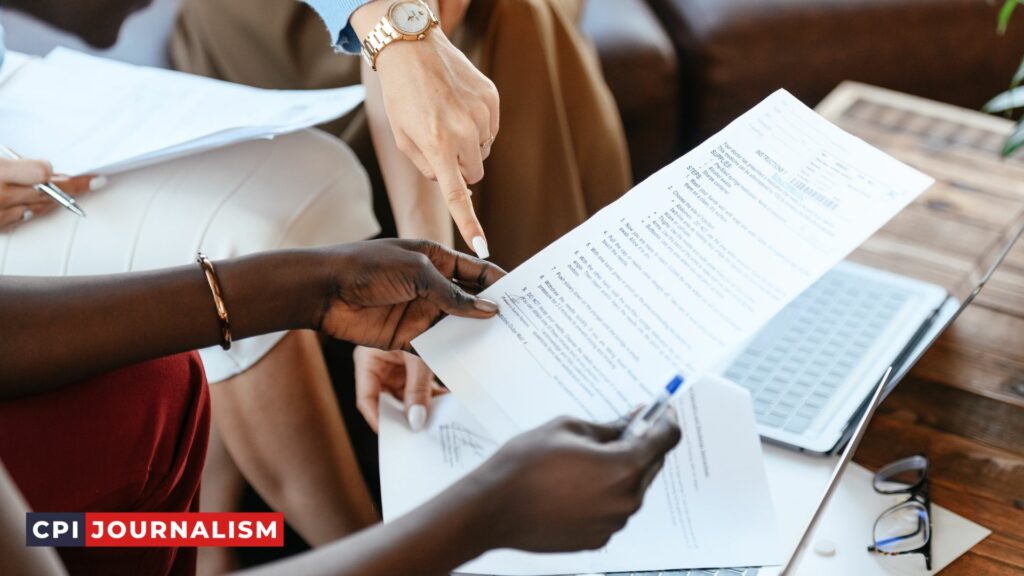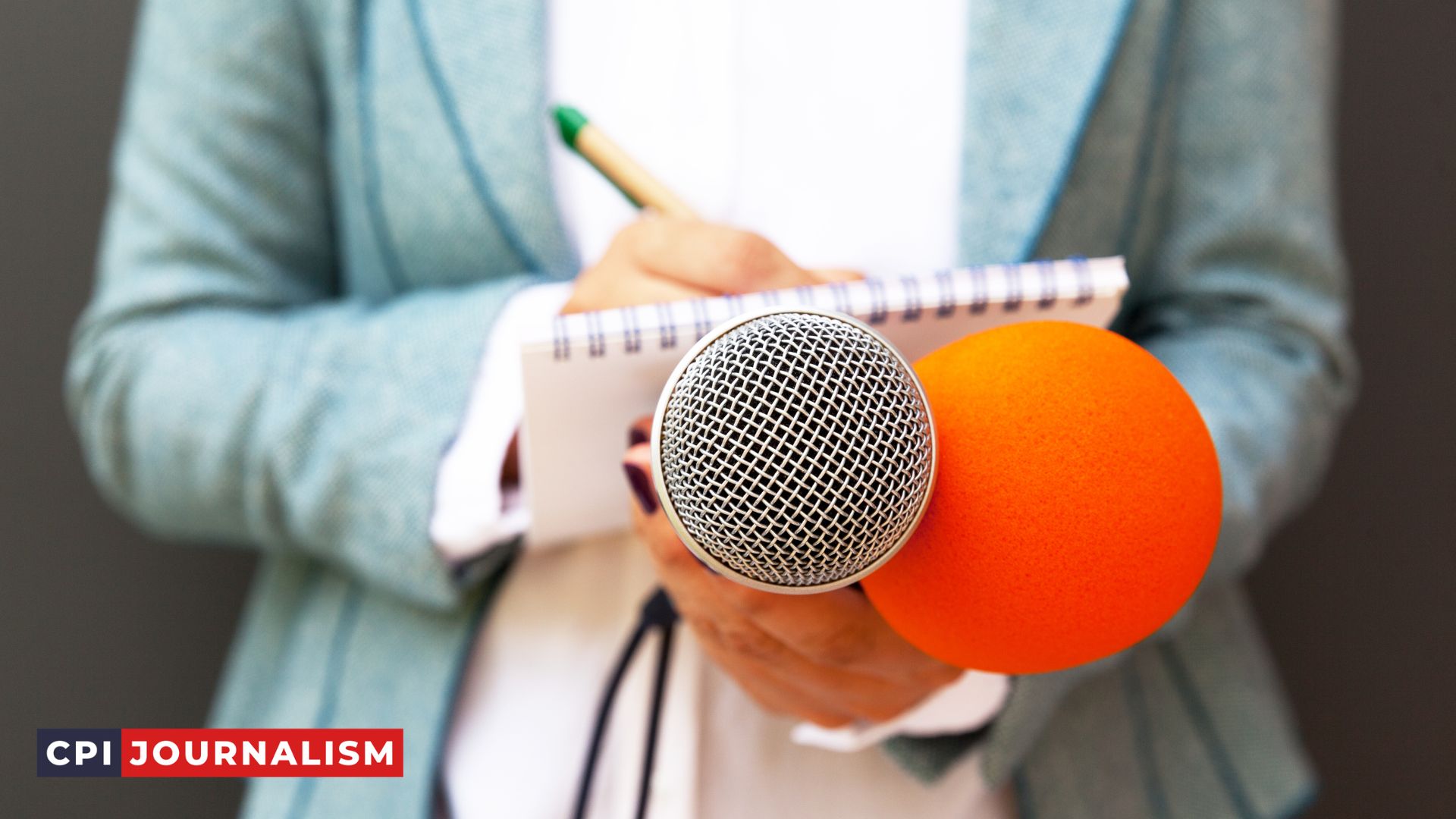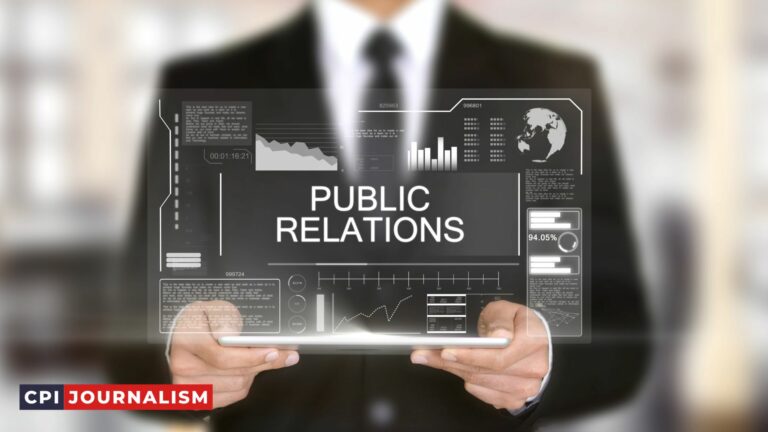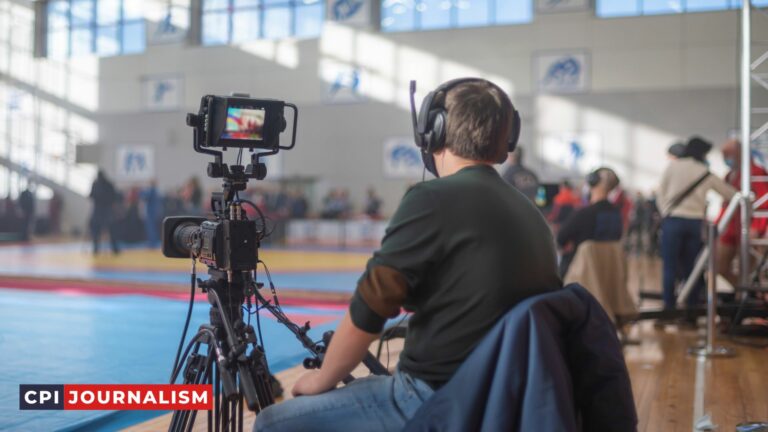How Do Sports Journalists Find And Verify Sources?
As an experienced journalist, I am here to share my wisdom, experience, and expertise with upcoming journalists on the essential skill of finding and verifying sources.
Finding and verifying sources is a vital part of being a successful journalist, as it ensures that all reported information is reliable and trustworthy.
This article will explore how sports journalists go about finding and verifying sources to ensure their work is of the highest quality.
A. Overview Of The Role Of Sports Journalists
Sports journalism is a field that involves reporting on the latest developments in the sports world. As a sports journalist, your role is to keep up with the latest news and events, and to provide accurate and timely information to the public.
The role of a sports journalist involves researching, interviewing, and writing stories about current sports events. You are responsible for finding and verifying sources, as well as providing timely and accurate information to your readers.
You must be able to analyze and interpret data and stories from multiple sources, and you should be able to write stories that are easy to understand and engaging.
In order to do your job effectively, you must have a good understanding of the sports world and the teams, leagues, and players involved. You must also be aware of the latest trends and developments in the field.
You should be able to identify potential sources and verify the accuracy of their information. You must also be able to communicate effectively with your sources, and have a good relationship with them.
Finally, you should be able to assess the overall impact of the story and determine whether or not it is newsworthy. You should be able to evaluate the importance of a story and how it could affect the public’s perception of the sport.
In conclusion, the role of a sports journalist is varied and complex. You must be knowledgeable about the sports world and be able to find and verify sources. You must also be able to assess the impact and importance of a story and determine whether or not it is newsworthy.
B. Benefits Of Verifying Sources
Having reliable and verified sources is a crucial part of the job for any sports journalist. Verifying sources allows journalists to provide accurate and trustworthy information to their readers.
Here are some of the key benefits to verifying sources:
1. Credibility: Verifying sources helps to ensure that the information being reported is accurate, factual, and reliable. This builds trust with readers, and helps to give the journalist a good reputation for delivering reliable content.
2. Reliability: Verifying sources helps to ensure that the information being reported is trustworthy and that the reporting is based on facts. This helps to prevent any misinformation from being spread and ensures that readers get the most accurate information possible.
3. Accuracy: Verifying sources helps to ensure that the information being reported is correct and that the reporting is based on verified data. This helps to reduce the chances of any factual errors and helps to minimize any potential legal issues that could arise from inaccurate reporting.
Verifying sources is an important part of the job for any sports journalist, and can provide a number of benefits to readers and journalists alike. It helps to ensure that the information being reported is accurate, reliable, and credible, and helps to build trust with readers.
II. Finding Sources
As a sports journalist, finding reliable sources is essential to producing trustworthy reporting. It is important to remember that the sources you use will reflect on the accuracy and quality of your work. Here are some tips to help you find and verify sources for any story you may be working on.
1. Start with existing contacts: Start by reaching out to contacts you already have in the sports world. These contacts can likely provide you with a great starting point for finding other sources.
2. Do your research: Take the time to research athletes, coaches, and other professionals in the sports world. This research can be done online by reading through their social media profiles or other publications they may have been involved in.
3. Use databases: There are several databases available that can help you find sources. These databases can include press releases, sports organizations, and even contact information for athletes and coaches.
4. Network with other journalists: Connecting with other journalists can be a great way to find sources. Many journalists have contacts that can provide you with insider information or help you find additional sources.
5. Verify the information: It is important to always verify the information you receive from any source. Verify the accuracy of the information and make sure it is up-to-date. Additionally, make sure the source is credible and reliable before using it in your reporting.
By following these tips, you can ensure you are finding reliable sources for your stories. Remember that the sources you use will reflect on the accuracy and quality of your work, so take the time to find quality sources and verify the information you receive.
A. Networking
As a sports journalist, networking is one of the most important tools you have at your disposal. It is a key factor in finding and verifying sources. Networking is all about connecting with people, building relationships, and exchanging information.
The best way to start networking is to attend industry events such as conferences, seminars, and trade shows. These events give you the opportunity to meet people in the industry and build relationships with them.
You can also use social media platforms such as Twitter, LinkedIn, and Facebook to connect with people in the industry and build relationships.
It is also important to build relationships with people in the sport you are covering. Get to know coaches, players, and other people in the sport. They can be invaluable sources of information and can give you valuable insights into the sport.
Finally, it is important to network with other sports journalists. You can learn from their experience and build relationships that can last for years. Building a strong network of reliable sources can be one of the most important things you can do as a sports journalist.
B. Social Media
Social media is becoming an increasingly important tool for sports journalists. It is a great way to find and verify sources, as well as to connect with the public and other journalists.
First and foremost, social media can be used to find sources. As most people are on social media these days, it is often the first place to look for potential sources. You can search for people related to the story you are writing, or use hashtags to find people with specific knowledge.
You can also use social media to find sources with a particular point of view, or sources that have a different opinion than yours.
Social media can also be used to verify sources. By looking at a person’s profile, you can often get a sense of their reliability and credibility. You can also look at their posts and interactions with other people to see if they are knowledgeable on the subject.

Additionally, you can use social media to find out if a person has any conflicts of interest that may affect their credibility.
Finally, social media can be used to connect with the public and other journalists. You can use it to solicit information and ask questions, or to share stories and updates about your work. It is also a great way to network and build relationships with other journalists and industry experts.
In summary, social media is an invaluable tool for sports journalists. It can be used to find and verify sources, as well as to connect with the public and other journalists. With the right approach, it can be a great way to gather information and build relationships that can help you in your work.
C. Press Conferences
For the sports journalist, press conferences are one of the essential tools for finding and verifying sources. Press conferences provide an opportunity for sports journalists to directly ask questions to the people involved in the story. This includes athletes, coaches, team owners, and other stakeholders in the sporting world.
Press conferences can also be beneficial for verifying sources. By asking a direct question, journalists can get a more reliable answer than what they may be able to get from other sources. This can be especially important when trying to confirm a rumor or story.
Press conferences also provide an opportunity to ask questions to the people involved in the story in an open and public forum.
This can lead to more reliable answers from sources that may not be comfortable speaking to a journalist one-on-one.
Finally, press conferences can also provide an avenue for sports journalists to gain access to exclusive information. By attending press conferences, journalists may be able to get the scoop on the latest news or stories that the public may not be aware of.
In short, press conferences can be a great tool for sports journalists to find and verify sources. By attending press conferences, journalists can ensure they are getting reliable information and, in some cases, access to exclusive information.
D. Online Resources
In the age of technology, online resources are the most efficient and effective way for sports journalists to find and verify sources. Online resources provide access to a wealth of information, from news articles to interviews, from statistics to data.
The internet provides sports journalists with an invaluable tool for finding sources. From official sports websites to blogs and social media sites like Twitter and Instagram, the possibilities are virtually endless.
By searching keywords related to the story they are researching, journalists can quickly find potential sources and contact them directly. This makes finding sources much easier and faster than traditional methods.
Verifying sources online is also much simpler than in the past. With the help of online databases and search engines, journalists can easily find the necessary information to verify a source.
Journalists can also search for public records such as birth certificates, marriage certificates, and criminal records to confirm the identity of a source.
Finally, online resources can provide journalists with access to a wealth of relevant data and statistics. From in-depth statistical analysis of a specific sport to historical records, journalists can find a wealth of information at their fingertips.
With the help of online databases and search engines, journalists can quickly and easily find the data they need to support their story.
In summary, online resources are a invaluable tool for sports journalists to find and verify sources. With the help of the internet, journalists can quickly and easily access a wealth of information and data to support their story.
III. Verifying Sources
Verifying sources is one of the most important steps for any sports journalist when writing a story. It is the process of confirming that the information a source provides is accurate and reliable. As a sports journalist, it is essential to ensure that the sources you use are trustworthy and unbiased.
The first step in verifying sources is to check the source’s credentials. This means verifying the source’s identity and qualifications to speak on the subject.
For example, if the source is a professional athlete, look into their background, accomplishments, and any statements they have made in the past.
Another important step in verifying sources is to check the accuracy of the information they provide. Cross-check their statements against other sources.
This helps to ensure the accuracy of the information they provide and also prevents the journalist from relying too heavily on one source.
Additionally, it is important to consider the sources’ motives for providing the information. Are they being paid to provide it? Are they trying to promote a certain point of view? Knowing a source’s motives can help to prevent any potential conflicts of interest.
Finally, it is important to consider the context of the information. Is it consistent with other information the source has provided in the past? Is it in line with the current trends in sports? Is it supported by reliable data?
Taking the time to analyze the context of the information can help the journalist to better understand the source’s point of view.
Verifying sources is a critical step in the process of writing a sports story. It is important to ensure that the sources used are reliable and unbiased.
Taking the time to check the source’s credentials, accuracy of the information, motives, and context can help the journalist to tell an accurate and compelling story.
A. Establishing Credibility
Establishing credibility is one of the most important aspects of sports journalism. Without it, your work won’t be taken seriously and it won’t be seen as trustworthy.
To establish credibility, you must take the time to get to know your sources and build relationships with them. Here are some tips to help you get started.
First, research your sources and make sure they are reliable. Check out their credentials and past work to confirm that they have the expertise to provide you with accurate information. Also, you should take the time to get to know them on a personal level. This will help you build trust and establish a rapport.
Second, always be honest and transparent with your sources. Ensure that they understand their role in the story and that they feel comfortable with it. This will ensure that they are more likely to remain honest and accurate.
Third, always verify your sources’ information. If a source provides you with information, make sure to double-check it and corroborate it with other sources. This will help you ensure accuracy and build credibility.
Finally, use social media to your advantage. Social media is an excellent tool for connecting with sources, finding new ones, and verifying information. You can also use it to build relationships and trust with your sources.
By following these tips, you can ensure that you are building credibility with your sources and stories. This will help you produce quality work that is both trustworthy and reliable.
B. Checking for Accuracy
As a sports journalist, it is important to verify the accuracy of any sources you are using. This means double-checking any facts or statistics to make sure they are accurate.
To do this, you should always cross-reference your sources. It is also important to look at the sources you are using to make sure they are reliable and unbiased.
You can also use fact-checking sites such as Snopes.com to check the accuracy of any sources you are using. Additionally, if you are using interviews as sources, it is important to check the accuracy of any quotes or statements the interviewee has made. It is also helpful to have a second source for any facts or statistics you are using.
Finally, if you are researching an unfamiliar topic, it is always a good idea to consult an expert in that field. This will help ensure you have the most accurate information possible.
In summary, accuracy is key when it comes to sports journalism. Before publishing any information, make sure to double-check your sources, cross-reference them, and consult an expert if necessary. This will help ensure you are providing your readers with accurate and reliable information.
C. Cross-Checking Information
Once a journalist has gathered information from their sources, it is essential to cross-check the information with other sources. This is where journalistic integrity and ethics come into play. It is important to ensure that the information gathered is accurate, reliable and unbiased.
Cross-checking information is done by comparing the information gathered from different sources. The journalist should evaluate the quality of information, looking for any discrepancies or inconsistencies.
They should also assess the credibility of the sources and determine if their information is reliable or not. It is important to consider the sources of the information and whether the sources are reliable.

In addition to cross-checking the information from different sources, journalists should also consider other factors such as the context in which the information was given and the accuracy of the language used. Any information should be verified and double-checked before being included in the story.
Cross-checking information helps to ensure that the information in the story is accurate and reliable. It is an important step in the process of gathering and verifying information and should not be overlooked.
As a journalist, it is essential to practice journalistic integrity and ethical standards when verifying and cross-checking information.
D. Utilizing Fact-Checking Tools
As an experienced sports journalist, I can not stress enough the importance of utilizing fact-checking tools when finding and verifying sources. Fact-checking tools are a great way to ensure that the information you are including in your stories is accurate and credible.
The most important thing to remember when using these tools is that they should only be used as a supplement to your research, not a substitute.
You should always verify the accuracy of your sources by conducting your own research and speaking to experts in the field.
The best way to maximize the effectiveness of these tools is to use multiple sources. Different fact-checking tools will have different coverage areas, so it is important to use a variety of sources to ensure that you are getting the most complete picture.
Additionally, it is important to remember that fact-checking tools are not foolproof. It is important to remember that these tools are only as reliable as the data they are given, so it is important to double-check any information you receive from these sources.
When used correctly, fact-checking tools can be invaluable resources for sports journalists in finding and verifying sources. By utilizing these tools, you can ensure that the information you are including in your stories is accurate and reliable.
IV. Conclusion
As a seasoned journalist, I can say that the process of finding and verifying sources is one of the most important steps in producing quality sports journalism.
Finding reliable sources is essential to the credibility of a story, and verifying sources is key to ensuring the accuracy of the information provided.
By using the strategies outlined in this article, journalists can increase the likelihood of locating reliable and accurate sources.
They can also be confident that the information they are receiving is accurate and valid. As a journalist, it is important to remember that the quality of a story depends heavily on the quality of sources.
In conclusion, sports journalists need to take the time to find and verify sources so that their stories are reliable and accurate.
It can be a time-consuming process, but it is worth the effort in the end. With the right strategies and techniques, journalists can locate reliable sources and verify their information for the best possible outcome.
A. Summary of the Process
As an experienced sports journalist, I can attest to the importance of finding and verifying sources when writing an article. The process of finding and verifying sources can be broken down into four distinct steps.
First and foremost, it is important to identify potential sources for a story. This may involve scouring social media for relevant information, searching for experts in the field, or even interviewing individuals who are knowledgeable about the subject matter.
The second step is to conduct research to ensure that the sources are accurate and reliable. This includes verifying that the sources are legitimate and have the necessary credentials to be considered a reliable source. It is also important to ensure that the information provided by the source is accurate and up-to-date.
The third step is to reach out to the sources to request an interview or additional information. Once the request has been accepted, it is important to properly prepare for the interview. This includes researching the topic, developing a list of questions, and preparing any necessary materials.
Finally, the fourth step is to conduct the interview and document the information. It is important to record the interview in its entirety, as well as take detailed notes. This information should then be verified and cross-checked with other sources, if possible.
In conclusion, finding and verifying sources is an essential part of the journalistic process. It requires diligence, research, and preparation in order to ensure that the information gathered is reliable and accurate.
B. Benefits of Verifying Sources
Verifying sources is one of the most important things a sports journalist can do in order to produce reliable and accurate reporting.
By taking the time to confirm the validity and accuracy of information, sports journalists can build trust with their readers and viewers and ensure that their stories are as accurate as possible.
Here are some of the key benefits of verifying sources:
1. Prevents False Information: One of the main benefits of verifying sources is that it helps to prevent false information from being reported. By double-checking the accuracy of the source and the information they provide, journalists can avoid the risk of publishing inaccurate or false statements.
2. Builds Trust: Verifying sources is also important in order to build trust with readers and viewers. Knowing that a sports journalist has taken the time to confirm the accuracy of the information they are reporting will help readers and viewers to trust the story and any conclusions or opinions the journalist may have.
3. Protects Reputation: Verifying sources also allows sports journalists to protect their own reputation. By double-checking the accuracy of the information they are reporting, journalists can avoid the risk of being called out for reporting inaccuracies. This can help to protect their reputation and ensure that their work is taken seriously.
Verifying sources is essential for any sports journalist who wants to produce reliable and accurate reporting. By taking the time to confirm the accuracy of the information they are reporting, sports journalists can build trust with their readers and viewers, protect their own reputation, and ensure that false information is not published.
C. Final Thoughts
As an experienced journalist, I believe that finding and verifying sources is one of the most important aspects of any journalist’s job.
Whether you’re writing a sports piece or any other kind of story, it’s essential to have reliable, trustworthy sources. It’s important to make sure that the sources you use are reliable, accurate and up-to-date.
In order to find and verify sources, you must be diligent and persistent. Take the time to do your research, ask questions and be sure to follow up on any information you receive. Don’t hesitate to reach out to people who may have the information you need.
Finally, remember that it’s not always easy to find and verify sources. It’s important to be patient and to be willing to put in the work in order to find the best sources.
With hard work and dedication, you can be sure that you’ll find reliable sources and get the most accurate information.







